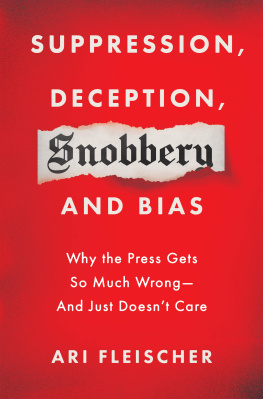FIRST MARINER BOOKS EDITION 2003
Copyright 2002 by Joseph Epstein
ALL RIGHTS RESERVED
For information about permission to reproduce selections from this book, write to Permissions, Houghton Mifflin Company, 215 Park Avenue South, New York, New York 10003.
www.hmhco.com
The Library of Congress has cataloged the print edition as follows:
Epstein, Joseph, date.
Snobbery: the American version/Joseph Epstein,
p. cm.
Includes bibliographical references and index.
ISBN -13: 978-0-395-94417-2
ISBN -10: 0-395-94417-1
ISBN -13: 978-0-618-34073-6 (pbk.)
ISBN -10: 0-618-34073-4 (pbk.)
1. Social statusUnited States. 2. Snobs and snobbishnessUnited States. I. Title.
HN 90. S 6 E 67 2002
305.5'0973dc21 2001051623
e ISBN 978-0-547-56164-6
v3.0415
For Kathleen and Lily
MY CALIFORNIA GIRLS
Acknowledgments
Whatever gaiety this book has is largely owing to the charm and verve of the magical music of Fats Waller, which I listened to almost constantly over the past two years. Whatever melancholy and errors the book contains have been supplied by the author.
Preface
This is a book about snobbery, its perplexities and its perils, its complications and not least its comedy. Behind its composition lies the perpetual questionnever, I hope, pressed too insistently but always looming in the backgroundof whether snobbery is a constituent part of human nature or instead an aberration brought about by particular social conditions. The book has been written for those who, after having looked into themselves and into the life around them, have acquired sufficient detachment to exclaim, rather un-originally perhaps, but nonetheless with ever-fresh astonishment: What a piece of work is man!
Whenever I happened to mention that I was attempting to write a book on snobbery, someone was sure to respond by saying that he or she hoped I was going to cover this or that aspect of the subjectthe snobbery of PBS television, of shades of skin color among African Americans, of health food, of contemporary artthat was, almost invariably, not included in my book. But snobbery, like bacteria, is found everywhere; this is part of its fascination and part of the difficulty it presents to its chronicler.
Snobbery also seems to have existed, in however attenuated a form, from the Tuesday of the week following that in which God created the universe. A brief illustration will reinforce my point. For more than a century after the Emperor Constantine moved the seat of the Roman Empire from Rome to Constantinople, some people would say, with pride but more with snobbery, that their family had come over with Constantine. Sound familiar?
Because snobbery is of such long standing and so very widespread, I early made a decision to concentrate my coverage of the subject to its role in America. In these pages, then, I have tried to make out the larger patterns of snobbery within the broad canvas of American life since the decline of what, later in the book, I call the Waspocracy. If your own favorite snobbery is missing, please accept my apology and take some (possibly snobbish) comfort that your awareness of snobbery exceeds that of the author of an entire book on the subject.
PART ONE
We will drink a little
and philosophize a little
and perhaps we both
who are made of blood and illusion
will finally free ourselves
from the oppressive levity of appearance.
Zbigniew Herbert, A Parable of King Midas
It Takes One to Know One
R ATHER THAN imply his superiority to his subject, the author of a book about snobbery ought to set out, fairly briefly, his own experience of snobbery. He ought to let his readers know if he has been a victim of snobbery, and of the sorts of snobbery to which he is susceptible, to allow them to judge his own relationship to the subject.
Perhaps the best way for me to begin, then, is to explain my social origins. These are a bit complicated. They seem to have been culturally lower middle class but with middle- and, later, upper-middle-class financial backing. Neither of my parents went to college. My father, growing up in Canada, in fact never finished high school; my mother took what was then known as the commercial course at John Marshall (public) High School in Chicago. They were both Jewish, but, against the positive stereotype of Jews loving culture and things of the mind, my parents had almost no cultural interests apart from occasionally going to musical comedies or, in later years, watching the Boston Pops on television. MagazinesLife, Look, later Timeand local newspapers came into our apartment, but no books. I dont recall our owning an English dictionary, though both my parents were well spoken, always grammatical and jargon-free.
Politics was not a great subject of family conversation. The behavior of our extended family and neighbors, money, my fathers relations with customers at his business, these made up the main conversational fareunspeculative, nonhypothetical, all very specific. Education was another subject of little interest; no time was spent, say, discussing the differences between Amherst and Williams colleges, for the good reason that neither of my parents had ever heard of such places.
My father, I believe, hadnt a speck of snobbery. It would not have occurred to him to want to rise socially in the world, and the only people he looked down uponapart from crooks of one kind or anotherwere people who seemed to be without the ambition to take measured risks in business. We had a distant cousin who was a lieutenant colonel in the U.S. Army, and my father was baffled by the notion of a Jewish man settling for a career in the regular army. It pleased my father to give ample sums to charities (many of them Jewish charities) and, in later years, to travel to foreign countriesonce, with my mother, to Paris on the Concorde and back from London on the QE2. Above all, it pleased him to have made enough money to help out his family and be able to establish his financial independence, which he did at the age of seventeen. But he barely acknowledged the social realm in which snobbery takes place. For him the world of status, where style, rank, and social climbing were central, was a mystery he felt no need to fathom.
My mother, though no snob either, had a greater awareness of snobbery. She was on the alert for snobberies used against her, and could be vulnerable to them. In her friendships she sought out women who were goodhearted, for she was goodhearted and generous herself. She also had an unashamed taste for what, by her standard, passed for luxe, which meant driving big cars (Cadillacs), owning lavish furniture, dressing well (furs, expensive dresses, Italian shoes, jewelry). She was made a bit nervous by people who had more money than she, and tended to arrange her social life among people who were her financial equals or inferiors. But I never saw my motheror my fathercommit a single socially mean act: I never saw them fawn over anyone better off than they, or put down anyone beneath them for reasons one would think to call snobbish.
Why, then, did the eldest of their two sons, the author of this book, have so keen a sense, almost from the outset of his consciousness, of the various arrangements that make for snobbery: social class, money, taste, religion, admired attainments, status of all kinds. As a small boy, I sensed who was richer than whom, noted people who lived more grandly and more poorly than we, immediately grasped what excited the envy of others, felt stirrings of incipient envy of my own. Where this came from I cannot even now say, but it was, beyond argument, in place. Nor, to this day, has it ever left me.
Next page

















